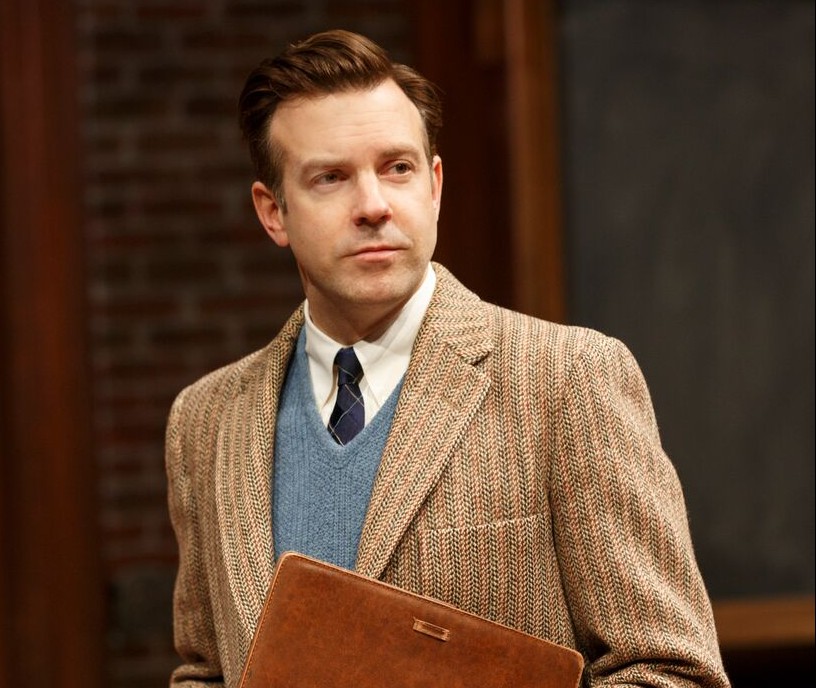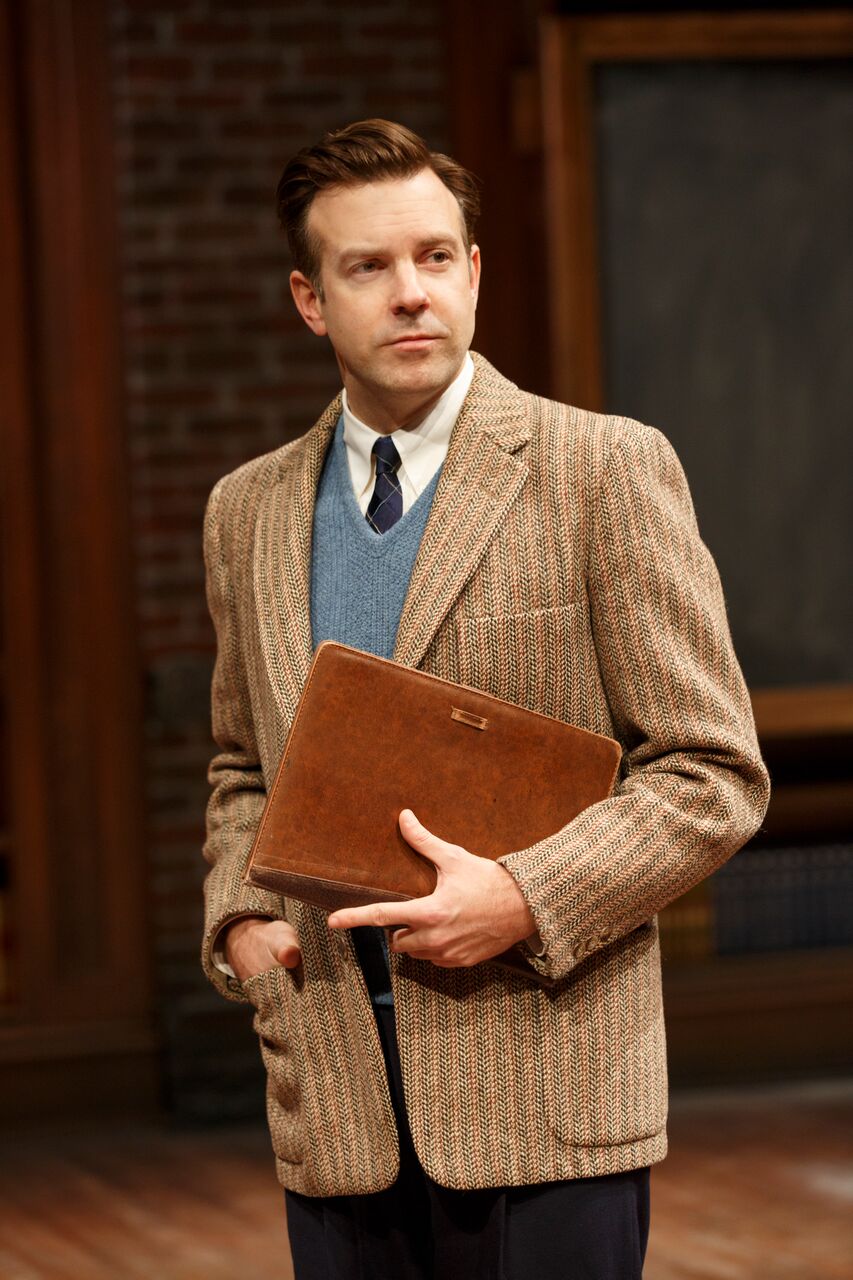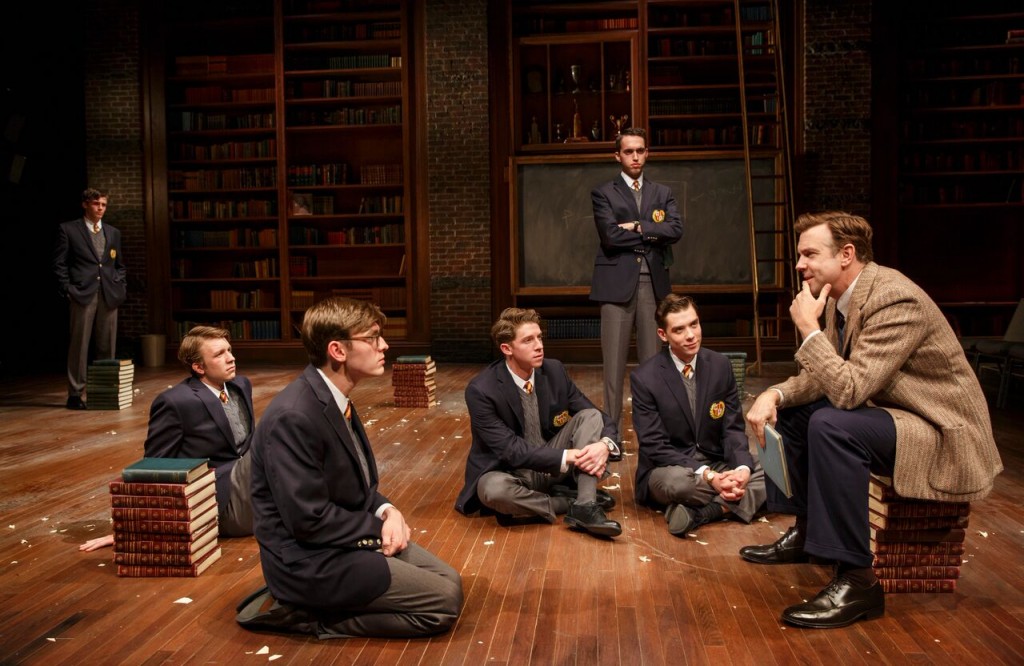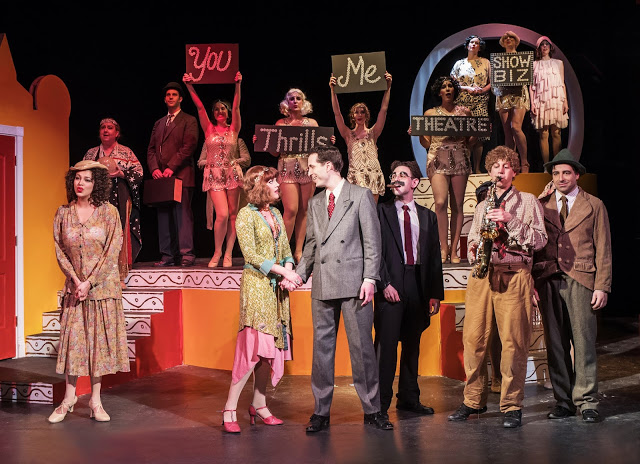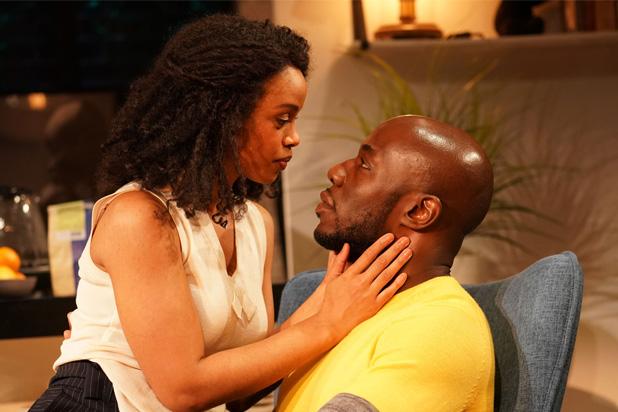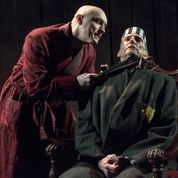by Carol Rocamora
He tells his students to rip out the introductions to their poetry books.
He orders them to run around the classroom to free themselves. He urges them to confront their fathers. Above all, he commands them to read – and write – poems.
Who is he? John Keating, the unorthodox new teacher in the tender, heartfelt adaptation of Dead Poets Society at Classic Stage Company. As played by Jason Sudeikis (of film and Saturday Night Live fame), he’s the inspiring, life-changing teacher you always dreamed of having.
Granted, Sudeikis has big shoes to fill – namely, Robin Williams’s iconic performance as Keating in Tom Schulman’s original 1989 film. But Sudeikis brings his own devilish charisma to the role of an unconventional poetry teacher who shakes up an English boys’ preparatory school in 1959. Supported by an exuberant ensemble of six students, Schulman’s stage adaptation of Dead Poets Society is a touching coming-of-age tale that belongs to the appealing “maverick-teacher-as-hero” genre, including other compelling works like The Prime of Miss Jean Brodie (novel and film) and Alan Bennett’s The History Boys (play and film).
As always, director John Doyle brings his special signature to adapted work by clearing the stage, allowing the story to tell itself. Upon entering the intimate CSC theatre, we’re greeted by the six eager young students, dressed in prep school blazers, doubling as ushers. Once they seat us in the three-quarters configuration, they take their places on the empty stage, backed by a wall of books. First we meet Mr. Nolan, the school’s arch-traditional headmaster (“tradition, honor, discipline, excellence” are his school’s so-called pillars). Then enter John Keating, the new teacher, who is about to upset the applecart with his radical approach to education. He commands his students to address him as “O Captain! My Captain!” (à la Whitman) and urges them to embrace the immortal verse of William Earnest Henley: “I am the master of my fate/ I am the captain of my soul.”
Inspired by their teacher’s passion for poetry and following his example, the six students form a secret “Dead Poets Society” (named after the group Keating founded when he was a student at Welton). As a result of this bonding and Keating’s unorthodox tutelage, thrilling transformations take place. Anderson (Zane Pais), the stutterer, now recites his new poems fluently; Overstreet (William Hochman) overcomes his shyness and recites poems to his beloved; Dalton (Cody Kostro) unleashes his inner rebellious self; Meeks (Bubba Weiler) is no longer meek; and Neil Perry (Thomas Mann) defies his father and follows his dream, acting in a school production of Midsummer Night’s Dream.
But, as Neil’s Puck predicts: “Lord, what fools these mortals be.” Cameron (Yaron Lotan), the group’s goody-goody, turns informer. Mr. Nolan (David Garrison) learns of the secret membership of the Dead Poets Society; and Neil’s controlling father (Stephen Barker Turner) discovers his son’s subterfuge and forbids him to appear on the stage. The results are devastating.
As Keating, Sudeikis dazzles the boys with his charming, demonic, “Jack Nicholson” grin, his outrageous methodology, and his heartfelt commitment to their self-discovery.
As Sudeikis weaves in and out of the audience, the whole theatre becomes his classroom, and we become his pupils, too. The chemistry between Sudeikis, the actors, and the audience is palpable, and his message to break the mold is inspiring for all.
As always, Doyle (CSC’s newly appointed artistic director) graces his work with clarity and simplicity, allowing the story to resonate more powerfully on the stage than on the screen. On designer Scott Pask’s set, books – the sole properties – are drawn from the shelves to become chairs, pedestals, and even weapons, at one point. A director praised for his magical touch with musicals (Sweeney Todd, Passion, Allegro), Doyle has added a ethereal dimension to Dead Poets Society – the boys’ a cappella voices, both solo, in unison, and in harmony, bridging the scenes and providing a moving narrative of their own – from childhood to manhood, or, as the poet Blake wrote, from innocence to experience.
Dead Poets Society, by Tom Schulman, directed by John Doyle, at Classic Stage Company, playing now until December 11.
Photos: Carol Rosegg


